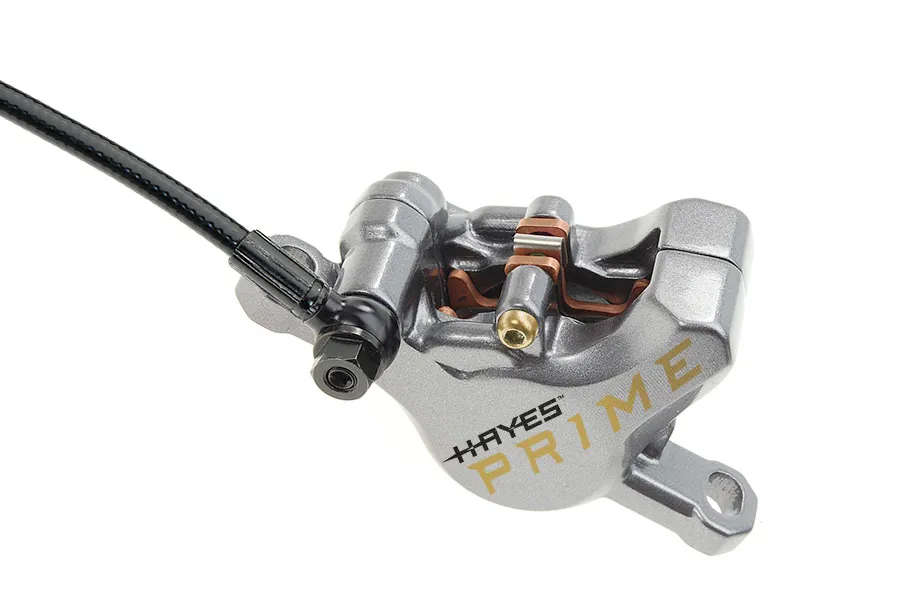Hayes Disc Brakes will replace the Stroker range with a new platform called Prime, due to be launched this summer.
In addition to a claimed 23 percent increase in stopping power thanks to revised hydraulic ratios, Hayes claim the new brake will also provide improved modulation and control, in addition to better ergonomics and adjustability.
The general layout is similar to Stroker in that Prime will continue to use a two-piece calliper and radial-type master cylinder, but that aside, there are few similarities.
For one, Prime's all-new 'Tiltbore' master cylinder internal design will finally add pad contact adjustment to Stroker's reach adjustment and both can be set independently and without tools.
Hayes' product manager Joel Richardson was tight-lipped on the so-called 'Poppet Cam' internals but he did reveal that it can be operated on-the-fly using just your thumb and that it will provide a wide range of adjustment.

The revised geometry will offer a more linear leverage ratio throughout the stroke and regardless of lever position for more predictable and consistent control, while a two-piece split clamp and true flip-flop design will ease installation and serviceability.
Prime will also signal Hayes' first use of top-loaded pads for the new two-piece aluminium calliper. In addition to being easier to replace and boasting a higher-friction compound, the bigger window will allow more cooling air to flow through to prevent overheating and also eliminate the possibility of a lost spring clip during a wheel change. A locking pin will prevent pad ejection and an additional sandwich spring will reduce pad rub.
The revised caliper shape is supposedly more resistant to flex, too, for increased clamping power, while a rotating banjo eases hose routing. According to Richardson, updated seals will improve all-weather durability.
The hose and rotor have been updated, too. The top-end Pro model will get a more stretch-resistant hose to prevent power loss and improve lever feel as well as a two-piece rotor weighing as little as 110g with a stainless steel brake track and aluminium carrier to reduce weight, plus a new machining pattern to cut down on noise.

The Pro will also get titanium and aluminium hardware, a titanium master cylinder push rod, and laser-etched graphics for lighter weight and a more premium appearance. The Prime Expert will use a standard stainless steel rotor and hose, and rubber hose covers on both models will guard against paint damage.
Hayes intend the Prime as a do-all platform covering the gamut of applications from cross-country to downhill (but not tandem) and so will offer 140 (rear only), 160, 180, 203 and even 224mm-diameter rotors to suit.
Compared to Stroker, "the end user is going to get a more powerful system, a more consistent system regardless of hand size or where you are in the stroke, [and] we've got a new hose, a new rotor and a new friction material in the brake pad," said Richardson. "We've tuned the brake to be more powerful, more linear, and the tool-free features on it are more user-friendly."
Target weight for the Pro is 385g for a complete front setup with 160mm rotor and the Expert is slightly heavier at 415g. Projected prices are aggressive across the board with the Prime Pro costing US$209 (UK prices TBC – direct currency conversion is £133) per wheel and the Expert model just $179 (approx £114). Consumers should see Prime on store shelves from June 2010.


